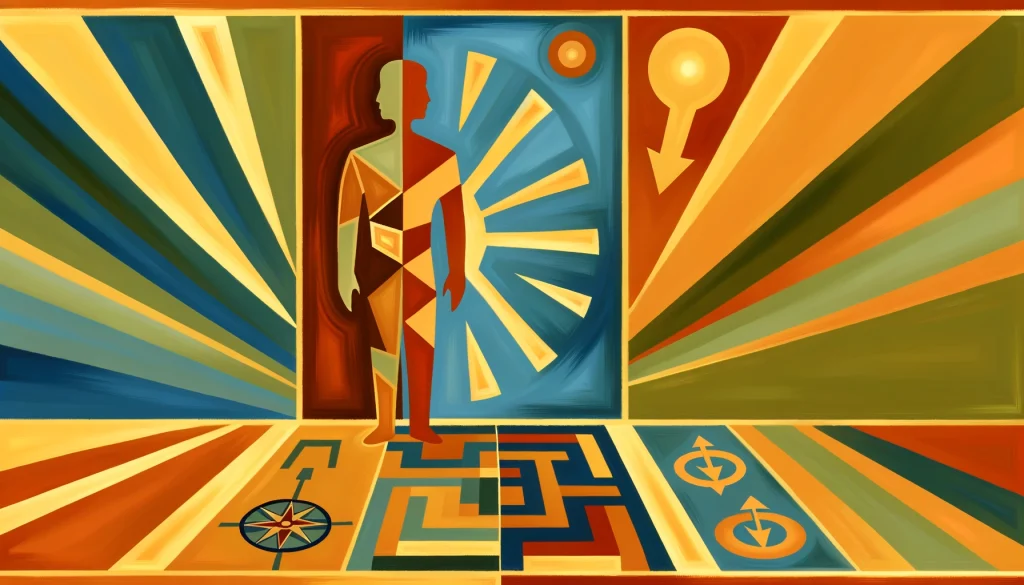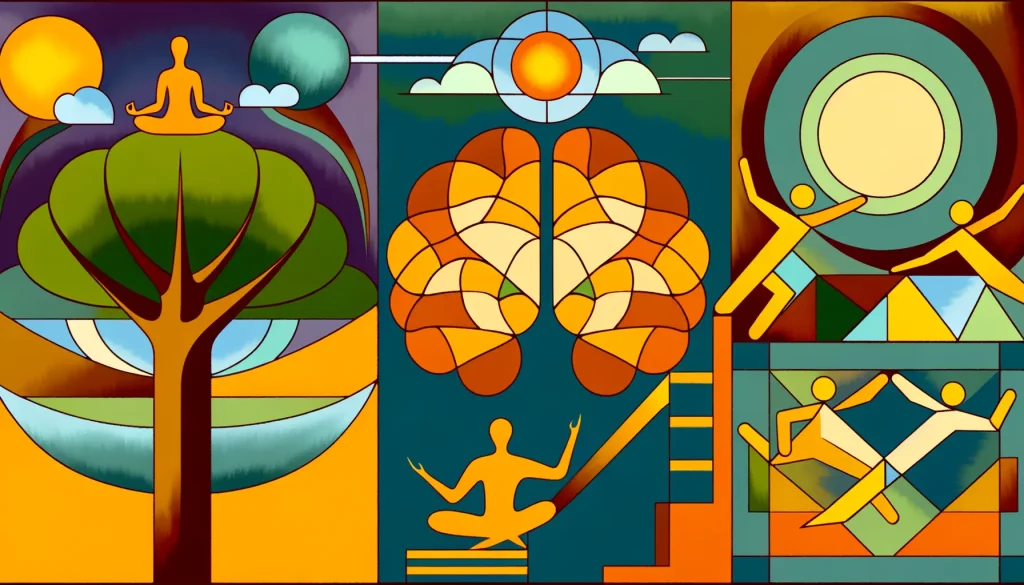Have you ever caught yourself staring out the window, wondering if there’s more to life than your daily routine? You’re not alone! According to a recent Gallup poll, only 20% of people feel truly engaged and purposeful in their daily lives. I’ve spent years studying how people discover and live their purpose, and I’m excited to share what really works. The good news? Finding your purpose isn’t about having one dramatic ‘aha’ moment, it’s about taking small, intentional steps toward understanding yourself better.
Understanding What Purpose Really Means
Let’s start by clearing up something important – purpose isn’t what most people think it is. While many imagine it as some grand, singular calling, psychologists actually define purpose as the stable and generalized intention to accomplish something meaningful to the self and consequential to the world beyond the self.
Think of it this way: goals are like destinations on a map, but purpose is more like your internal compass. You might have multiple goals throughout your life, but your purpose helps guide which goals you choose to pursue.
Interestingly, many people believe they need to have their purpose completely figured out before taking action. That’s simply not true! Purpose develops through action and experience, much like how you discover your favorite foods by actually trying them, not just thinking about them.
Signs You’re Disconnected From Your Purpose
Have you been feeling constantly tired, even after a full night’s sleep? Or maybe you’re experiencing what I call the “Sunday night dread” that extends throughout the week? These could be signs you’re out of alignment with your purpose.
Many people experience purpose disconnection through:
- Chronic procrastination
- Feeling envious of others who seem to “have it all figured out”
- Difficulty making decisions about your future
- Relationship conflicts stemming from feeling unfulfilled
These feelings often intensify during major life transitions like graduating, changing careers, or entering new decades of life.
Core Elements of Finding Your Purpose
Finding your purpose is like putting together a puzzle – you need all the right pieces. The first piece is understanding your values. What matters most to you? Is it creativity, justice, knowledge, or perhaps connection?
The second piece involves exploring your passions. What activities make you lose track of time? What topics do you love learning about? These aren’t just hobbies – they’re clues to your purpose.
Next, look at your natural talents and acquired skills. What comes easily to you? What do others consistently praise you for? The sweet spot often lies where your skills intersect with what the world needs.
Practical Steps to Discover Your Purpose
Let’s get practical! Start with a simple five-minute daily reflection practice. Ask yourself: “What gave me energy today?” and “What drained me?” Keep track of your answers – patterns will emerge.
Don’t be afraid to experiment. Take that cooking class you’ve been curious about. Volunteer at different organizations. Each experience, whether positive or negative, helps clarify your direction.
Seeking mentorship can fast-track your journey. Look for people who inspire you – not just in their achievements, but in how they live their lives.
Aligning Daily Life With Your Purpose
Creating alignment starts the moment you wake up. Design a morning routine that connects you with your purpose before the day’s demands take over. This might mean reading inspiring material, practicing gratitude, or working on a meaningful project.
In your career, look for ways to bring more purpose-aligned activities into your current role before making dramatic changes. Could you mentor junior colleagues? Lead a sustainability initiative? Small shifts can create significant impact.
Overcoming Obstacles to Living Purposefully
Let’s be real – living with purpose isn’t always easy. Self-doubt might whisper, “Who am I to think I can make a difference?” Remember, purpose isn’t about being perfect; it’s about being authentic.
Financial concerns often hold people back. But living purposefully doesn’t always mean quitting your job. Start with small steps that don’t require major financial changes. Could you spend one hour a week pursuing something meaningful?
Time management becomes easier when you’re clear on your purpose. You’ll naturally start saying “no” to activities that don’t align with your values, creating space for what truly matters.
Conclusion
Remember, finding your purpose is a journey, not a destination. Start with small steps today, whether it’s journaling about your values or having meaningful conversations with loved ones. The path to purpose looks different for everyone, but the rewards of living aligned with your values are universal. What small step will you take today toward discovering your purpose?






